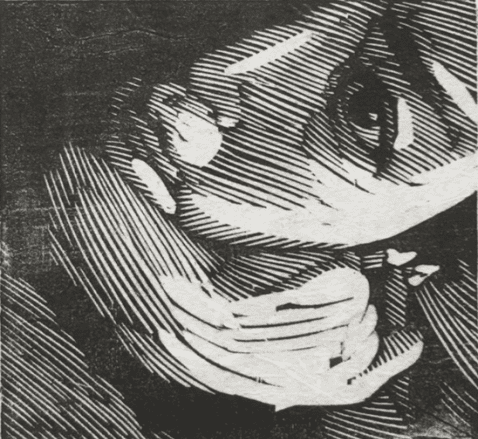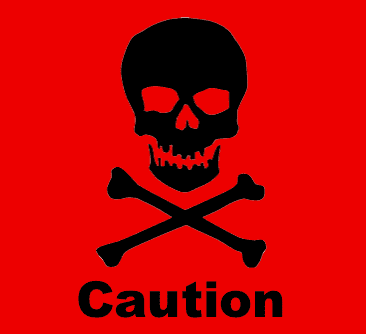Depression

Depression is the feeling of despondency and dejection with a lack of interest or enjoyment in most or all activity. There may be feelings of hopelessness, inadequacy and guilt. It is usually accompanied with low energy, poor appetite and digestion and various other physical symptoms such as headache, insomnia, menstrual disturbances etc.
Depression is approximately twice as common in women as it is in men. Approximately 10–25% of women and 5–12% of men are affected at some stage in their life. Biochemically, it is associated with Monoamine Neurotransmitters, specifically Norepinephrine, Serotonin and Dopamine which is why MAO inhibitors are used in western medicine for Depression.
Mild Depression when reactive to some situation such as a death in the family is completely natural, and typically will dissipate with time. In such cases, gentle sedative medicines can help the person feel more settled and sleep better. Depression that continues after a stressful situation or sad event, or appears without real cause requires medical intervention.
Severe ongoing Depression, is called Major or Clinical Depression. The person is unable to work, study, sleep, eat or enjoy time with friends and family. Normal activities may seem impossible. In the most severe cases, the feeling of hopelessness may lead to suicide.
In Traditional Medicine, Mild Depression is typically associated with Qi Stagnation. It also commonly comes as a result of prolonged deficiency where the person doesn’t have the strength to face day-to-day life. Severe and Chronic Depression was classically related to Melancholy, and purging the Melancholy Humor may bring good relief in suitable cases.

|
Major Depression can be life-threatening if untreated as the person may attempt self harm, harm to loved ones or even suicide. People being treated for Depression must be carefully monitored until stable, and in some cases, western Medical Intervention may be required to stabilise the person while the underlying condition can be treated with Traditional Medicine. |
|
Western Tradition |
TCM Classification |
|
1. St. Johns wort 2. Licorice 3. Withania |
4. Rosemary 5. Rhodiola 6. Convolvulus Shankhapushpi |
|
Balm & St. Johns wort Rose, Sandalwood & Licorice |
Bupleurum Chai Hu & Paeonia Bai Shao |
Differential Diagnosis:
Qi Stagnation / Wind
A calm and relaxed disposition is related to the smooth flow of Qi. When the Qi is blocked or erratic, symptoms appear. Stagnation of Qi is closely related to Depression while erratic Qi (Wind) is related to causation of Stress and Anxiety.
Symptoms: Nervous, anxiety, restless; feeling of tension or distention; constantly thinking of the same things, unable to overcome simple problems. Maybe Headache, digestive symptoms etc. Pulse is low or blocked, tongue quivers.
Long term debility leads to an inability to cope with daily stress, thereby resulting in Depression. By strengthening the body, increasing Qi and Blood, the person is able to cope with normal stresses and develops stronger resistance to stress.
Symptoms: Fatigue, weakness, unable to face daily life; digestive debility; pulse very weak, tongue pale.
As the Heart ‘Stores of the Spirit’, Heart Weakness causes Deficiency of Spirit while Heart Heart causes restlessness of Spirit.
Symptoms: Depression, Palpitations with Anxiety, scares easily, insomnia, dream-disturbed sleep, deep and weak pulse (fast if there is Heart Fire), Pale Tongue; red tip to the tongue if there is Heart Fire.
Melancholy is closely associated with the concept of Damp in TCM and both have a stagnating quality. Avoiding foods which are hard to digest and strengthening digestion are important aims of treatment.
Symptoms: Depression, Fear, Anxiety without cause; prefers solitude; dull or dark complexion; poor appetite
This may come after Trauma (such as PTSD), after a Fright or due to long-term Heart weakness.
Symptoms: Insomnia, dream-disturbed sleep, anxiety; distressed look on face, palpitations; pulse is tight or irregular. Tongue maybe has red tip (Heart fire) or Quivers.
General Formulas:
1. St. Johns wort, Balm, Valerian for Depression and Anxiety
2. Kai Xin San: Ginseng Ren Shen, Calamus Shi Chang Pu, Polygala Yuan Zhi, Poria Fu Ling
3. Yue Ju Wan, Atractylodes Cang Zhu, Ligusticum Chuan Xiong, Cyperus Xiang Fu, Gardenia Zhi Zi, Medicated Leaven (Shen Qu)
4. Valerian, Convolvulus Shankhapushpi, Plumbago, Boswellia, Calamus. This combination was found to have anti-depressant activity.
5. Indian Spikenard (8 parts), Withania (4 parts), Henbane seed (1 part). This is an Ayurvedic compound called Mamsyadi Kwatha and has proven Antipressant effects)
Research:
1. GENERAL/REVIEW
–Herbal medicines in the treatment of psychiatric disorders: 10-year updated review.
–A systematic review on the efficacy, safety and types of Chinese herbal medicine for depression.
–Nutritional strategies for dealing with depression.
–Herbal Medicine for Depression and Anxiety: A Systematic Review with Assessment of Potential Psycho-Oncologic Relevance
–Depression from the perspective of modern and Persian medicine
2. HYPERICUM
–A systematic review of St. John’s wort for major depressive disorder.
–St. John’s wort for the treatment of psychiatric disorders.
3. SAFFRON
–The effects of alcoholic extract of saffron (Crocus satious L.) on mild to moderate comorbid depression-anxiety, sleep quality, and life satisfaction in type 2 diabetes mellitus: A double-blind, randomized and placebo-controlled clinical trial.
–Crocus sativus L. in the treatment of mild to moderate depression: a double-blind, randomized and placebo-controlled trial.
–Saffron (Crocus sativus L.) and major depressive disorder: a meta-analysis of randomized clinical trials.
–A double-blind, randomized, placebo-controlled trial of saffron stigma (Crocus sativus L.) in mothers suffering from mild-to-moderate postpartum depression.
–Antidepressant Effect of Crocus sativus Aqueous Extract and its Effect on CREB, BDNF, and VGF Transcript and Protein Levels in Rat Hippocampus.
–A preliminary assessment of a combination of rhodiola and saffron in the management of mild-moderate depression.
–affron®, a standardised extract from saffron (Crocus sativus L.) for the treatment of youth anxiety and depressive symptoms: A randomised, double-blind, placebo-controlled study.
–Comparison of Crocus sativus L. and imipramine in the treatment of mild to moderate depression: a pilot double-blind randomized trial
–Comparison of Saffron versus Fluoxetine in Treatment of Mild to Moderate Postpartum Depression: A Double-Blind, Randomized Clinical Trial.
–A double-blind, randomized and placebo-controlled trial of Saffron (Crocus sativus L.) in the treatment of anxiety and depression.
–Hydro-alcoholic extract of Crocus sativus L. versus fluoxetine in the treatment of mild to moderate depression: a double-blind, randomized pilot trial.
4. OTHER HERBS
–A medicinal herb, Melissa officinalis L. ameliorates depressive-like behavior of rats in the forced swimming test via regulating the serotonergic neurotransmitter.
–Berberine attenuates depressive-like behaviors by suppressing neuro-inflammation in stressed mice.
–Effects of Rosmarinus officinalis L. on memory performance, anxiety, depression, and sleep quality in university students: A randomized clinical trial.
–Antidepressant, Anxiolytic and Antinociceptive Activities of Constituents from Rosmarinus Officinalis.
–Antidepressant effects of the water extract from Taraxacum officinale leaves and roots in mice.
–An update on Ayurvedic herb Convolvulus pluricaulis Choisy.
–Antidepressant-like effect of Butea superba in mice exposed to chronic mild stress and its possible mechanism of action.
–Rhodiola rosea versus sertraline for major depressive disorder: A randomized placebo-controlled trial.
–Herbal medicines, other than St. John’s Wort, in the treatment of depression: a systematic review.
5. CHINESE HERBS
–The Anti-depression Effect of Angelicae Sinensis Radix Is Related to the Pharmacological Activity of Modulating the Hematological Anomalies.
–Radix Bupleuri ameliorates depression by increasing nerve growth factor and brain-derived neurotrophic factor.
–Anti-Depressant-Like Effect of Sinomenine on Chronic Unpredictable Mild Stress-Induced Depression in a Mouse Model.
–Preclinical evidence of rapid-onset antidepressant-like effect in Radix Polygalae extract.
–The Antidepressant and Cognitive Improvement Activities of the Traditional Chinese Herb Cistanche.
–Involvement of the glutamate/glutamine cycle and glutamate transporter GLT-1 in antidepressant-like effects of Xiao Yao san on chronically stressed mice.
–Antidepressant and neuroprotective effect of the Chinese herb kaixinsan against lentiviral shRNA knockdown brain-derived neurotrophic factor-induced injury in vitro and in vivo.
–Antidepressant Effect and Recognition Memory Improvement of Two Novel Plant Extract Combinations – Antistress I and Anti-stress II on Rats Subjected to a Model of Mild Chronic Stress.
6. FORMULAS
–Prescription of Chinese Herbal Medicine in Pattern-Based Traditional Chinese Medicine Treatment for Depression: A Systematic Review.
–[Research progress on antidepressant effects of Sini San based on three progressive levels of “single herb, herb-pair, and complicated Chinese herbal formula”].
–Anti depressant activity of Mamsyadi Kwatha: An Ayurvedic compound formulation
